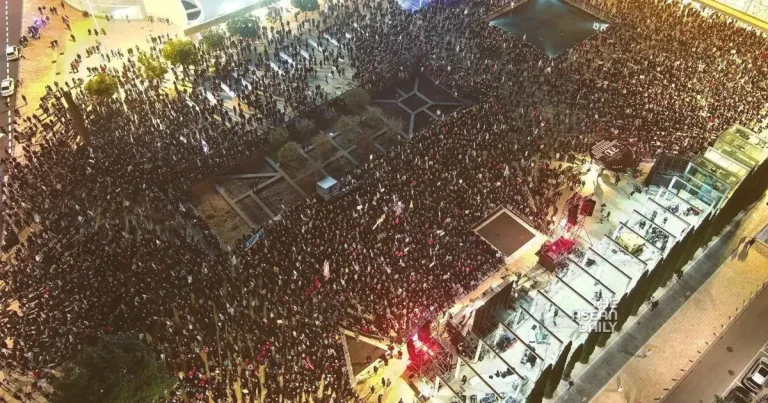25-1-2024 (GAZA) Amidst the aftermath of the conflict in Gaza, a quiet discussion is taking place involving five Arab nations, supported by the United States, with the aim of laying the groundwork for a Post-War Gaza. Simultaneously, negotiations facilitated by Qatar are reportedly underway to formulate a detailed proposal for the release of remaining hostages held by Hamas.
Saudi Arabia, the United Arab Emirates, Qatar, Jordan, and Egypt—five Arab states—are collaboratively crafting a proposal to bring an end to the Gaza conflict and establish an independent Palestinian state. According to the Financial Times, the plan entails Saudi Arabia formally recognizing Israel in exchange for the recognition of a Palestinian state—a crucial step towards a two-state solution.
As reported by Bloomberg, the proposal also involves the Arab states offering security training to empower Palestinians to take control of Gaza themselves. It remains unclear whether the Palestinian Authority, which lost control of the Gaza Strip to Hamas in the mid-2000s, is included in this plan.
Additionally, the proposal promises a substantial amount of funding for Gaza’s reconstruction. A World Bank report cited by Bloomberg reveals that over 60% of Gaza’s infrastructure has been damaged or destroyed, emphasizing the urgent need for rebuilding efforts.
The Arab states involved in the prospective peace plan are cautious about committing to reconstruction efforts without safeguards against future destruction caused by another conflict. These discussions have gained significant momentum with the involvement of the United States and Israel, which has offered to mediate further negotiations.
The United States and the European Union, as major allies of Israel, have long supported a two-state solution, which was the goal of both Israel and the Palestinian Authority, albeit rejected by Hamas. Singapore also advocates for a negotiated two-state solution in line with relevant United Nations Security Council resolutions, aiming for a safe and lasting peace.
However, Israeli Prime Minister Benjamin Netanyahu has explicitly rejected the two-state solution, even expressing pride in preventing its realization. Netanyahu’s Likud government, one of the most right-wing in Israel’s history, has seen some members calling for the expulsion of Palestinians from Gaza and the annexation of the territory. This stance contradicts the goals of a two-state solution.
Fierce fighting continues in Gaza following a raid by Hamas into southern Israel on October 7, originating from the Gaza Strip. The raid resulted in over 1,200 deaths and nearly 240 people being taken hostage. In response, Israel launched attacks on the Gaza Strip, vowing to dismantle the militant group, resulting in an estimated 25,000 deaths.
The ongoing conflict has escalated tensions not only within Israel and Gaza but also in the wider region, with clashes occurring in the West Bank, the other Palestinian territory. It has also provided justification for Houthi rebels in Yemen, supported by Iran, to target commercial shipping in the Red Sea, leading to the formation of a U.S.-led international military coalition to counter the Houthis. The resulting disruption to global shipping has elevated the regional conflict to a global crisis.
Despite the ongoing violence, Israel is engaged in discussions to secure the release of the remaining hostages held by Hamas. A negotiated prisoner exchange has already resulted in the release of around 100 hostages in exchange for approximately 240 Israeli prisoners.
Bloomberg reported on January 25 that talks between Israel and Hamas continue, with a “detailed proposal” for a permanent ceasefire being discussed. In exchange for the release of all remaining hostages, Israel would release some Palestinian prisoners and ensure a constant and increased flow of aid into Gaza. Qatar, traditionally acting as the mediator between the two groups, is facilitating these negotiations.




